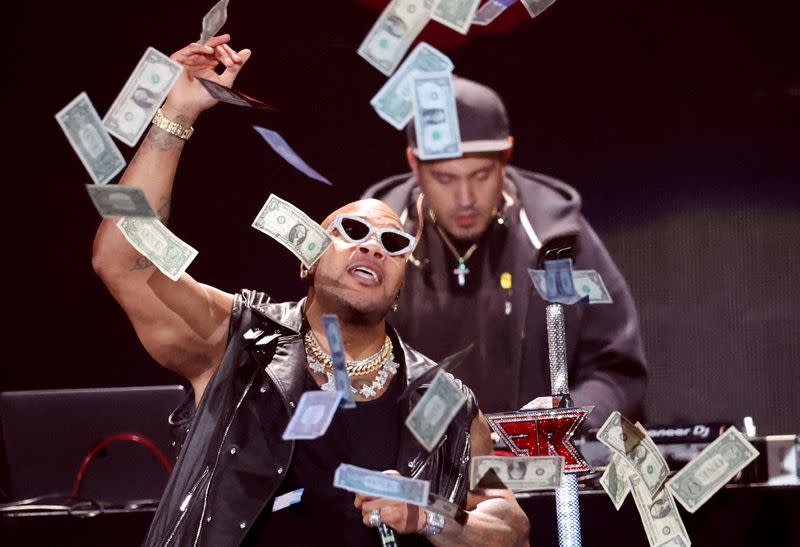US Supreme Court may dump Warner Music dispute over copyright damages

By Blake Brittain
WASHINGTON (Reuters) - U.S. Supreme Court justices signaled on Wednesday they may dismiss a legal fight between a Miami music producer and Warner Music over a song by rapper Flo Rida.
Some of the justices during arguments in the case questioned whether they should decide the monetary damages issue raised in plaintiff Sherman Nealy's lawsuit against Warner before resolving in separate litigation the proper time limit for filing copyright suits.
Two music publishing companies - Warner Music's Warner Chappell as well as Artist Publishing Group - have appealed a lower court's ruling that defendants in copyright infringement cases can be held liable for actions that occurred prior to the three-year statute of limitations for filing such litigation.
Nealy has said that his label Music Specialist owns rights to the electronic dance song "Jam the Box" by Tony Butler, also known as Pretty Tony. Warner artist Flo Rida, whose given name is Tramar Dillard, incorporated elements of "Jam the Box" into his 2008 song "In the Ayer."
Nealy's label ceased operations before he started serving a 20-year prison sentence for cocaine distribution in 1989. He served a second sentence from 2012 to 2015.
Nealy sued Warner Chappell and others in Florida federal court in 2018, arguing that they took an invalid license to "Jam the Box" from Butler, his former business partner, while he was incarcerated. The producer said he did not learn of the license until 2016, and requested damages for copyright infringement that allegedly began as early as 2008.
A federal judge said that Nealy could recover damages only for infringement that happened during the three years before he filed the lawsuit, based on the U.S. statute of limitations for bringing copyright-infringement cases after discovering a claim. The Atlanta-based 11th U.S. Circuit Court of Appeals reversed the decision last year, deciding that there was "no bar to damages in a timely action."
Other federal appeals courts have reached contradictory conclusions on the issue. The New York-based 2nd Circuit limited copyright damages to the three-year period before a lawsuit, while the San Francisco-based 9th Circuit opted not to impose a time limit.
The Supreme Court granted review to consider the damages question specifically. Justices including Amy Coney Barrett, Ketanji Brown Jackson and Sonia Sotomayor criticized Warner's attorney Kannon Shanmugam for focusing on the argument that the statute of limitations for Nealy's claim should have started when the alleged infringement happened instead of when he discovered it.
That was not the issue on which the court agreed to hear the case, Sotomayor said.
Justices Samuel Alito and Neil Gorsuch suggested that the court could dismiss the case without issuing a decision.
"What concerns me is that we are being asked to decide a question that may be eliminated based on a subsequent decision" on whether the "discovery rule" applies, Alito said.
"Why does it make sense to talk about the second without resolving the first?" Alito asked.
(Reporting by Blake Brittain in Washington; Editing by Will Dunham)


